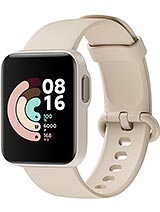CNET News - How accurately do fitness trackers monitor sleep? By CNET
Fitness trackers not only count our steps and calories burned. Many provide sleep stats, but can you trust that data? We asked an expert at the Stanford center for sleep sciences. Reason why these devices are good is because it puts greater emphasis on sleep. Most adults in the US are actually somewhat sleep-deprived, but are they accurate? The devices offer relatively little data as compared to the gold standard for measuring sleep. Polysomnography is a collection of different physiologic measures that we used to define and characterize sleep. We start with EEG, which are little electrical wires, that measure your brain waves, and it doesn't stop there prepping a patient for polysomnography takes close to an hour.
It also includes measures like a snore mic that we in your neck inside your nose and over your nose in your mouth, to kind of record your breathing belts around your chest and your abdomen. That will also record your breathing patients stay overnight for these sophisticated sleep studies which require a slew of equipment for muscle, monitors to EKG machines. Fitness trackers, on the other hand, use accelerometers they're, not actually measuring sleep, they're measuring in an indirect approximation of sleep through movement. In order to make these estimations of deeper light sleep, they are probably using an algorithm that takes into account the relative amount of movement that a person is having over the course of the night. Fitness devices have another key flaw: they can't precisely measure sleep latency the time it takes to fall asleep.
Both of them are really not very good at telling how long you're awake in the middle of the night and your total sleep time relative to the amount of the time of year in bed, still there's value in paying more attention to your sleep habits. A lack of sleep can affect mood, ability to concentrate man more fitness, trackers motivate us to get our steps in, but they could help us get our Z's in — in Redwood, City, California, I'm, Humid, see Net com for CBS. Do.
Source : CNET
Phones In This Article
Related Articles
Comments are disabled
Filter
-
- All Phones
- Samsung
- LG
- Motorola
- Nokia
- alcatel
- Huawei
- BLU
- ZTE
- Micromax
- HTC
- Celkon
- Philips
- Lenovo
- vivo
- Xiaomi
- Asus
- Sony Ericsson
- Oppo
- Allview
- Sony
- verykool
- Lava
- Panasonic
- Spice
- Sagem
- Honor
- Plum
- Yezz
- Acer
- Realme
- Gionee
- Siemens
- BlackBerry
- QMobile
- Apple
- Vodafone
- XOLO
- Wiko
- NEC
- Tecno
- Pantech
- Meizu
- Infinix
- Gigabyte
- Bird
- Icemobile
- Sharp
- Karbonn
- T-Mobile
- Haier
- Energizer
- Prestigio
- Amoi
- Ulefone
- O2
- Archos
- Maxwest
- HP
- Ericsson
- Coolpad
- i-mobile
- BenQ
- Toshiba
- i-mate
- OnePlus
- Maxon
- VK Mobile
- Microsoft
- Telit
- Posh
- NIU
- Unnecto
- BenQ-Siemens
- Sewon
- Mitsubishi
- Kyocera
- Amazon
- Eten
- Qtek
- BQ
- Dell
- Sendo
- TCL
- Orange
- Innostream
- Cat
- Palm
- Vertu
- Intex
- Emporia
- Sonim
- YU
- Chea
- Mitac
- Bosch
- Parla
- LeEco
- Benefon
- Modu
- Tel.Me.
- Blackview
- iNQ
- Garmin-Asus
- Casio
- MWg
- WND
- AT&T
- XCute
- Yota
- Jolla
- Neonode
- Nvidia
- Razer
- Fairphone
- Fujitsu Siemens
- Thuraya










![BlackBerry KEYone Review: Desire Over Meaning [4K]](https://img.youtube.com/vi/tSCYdyDuW-E/maxresdefault.jpg )














